Springhouse Review for Critical Care Nursing Certification
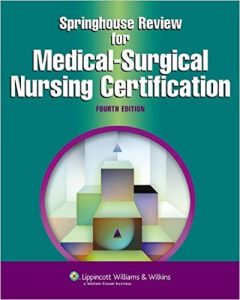
[amazon template=iframe image2&asin=B019L58ND0]
Medical Books Library for Doctors, Physicians, Surgeons, Dentists, Intensivists, Physician Assistants, Nurses, Medical Technicians and Medical Students
Medical books library


[amazon template=iframe image2&asin=B019L58ND0]
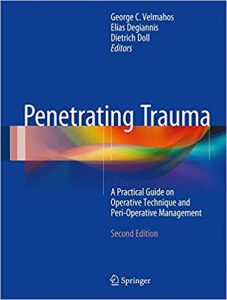
[amazon template=iframe image2&asin=366249857X]
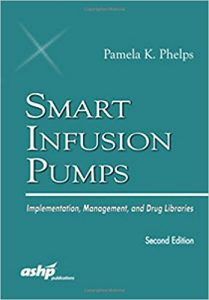
[amazon template=iframe image2&asin=1585285137]
There are no two ways about it: smart infusion pumps have transformed the dosage delivery system by reducing errors and improving patient care. However, clinicians and nurses are crucial in making critical decisions, monitoring the systems, and managing drug libraries. It is therefore vital that healthcare professionals have the most comprehensive expert guidance possible. ASHP’s updated edition of Smart Infusion Pumps puts all the information you need at your fingertips. This is the core handbook for selecting, implementing, and operating this essential medical technology, covering every aspect of infusion pump management, including guidance for their growing use in patient home care. Updated and expanded, with practice tips, charts, checklists, scenarios, and more, the second edition details procedures that ensure efficiency, effectiveness, and patient safety. Inside this edition you’ll find:*8 updated and 5 new chapters.* Key terms.* Practice tips.* References.* An expanded drug library for general and paediatric use, and patient-controlled analgesia. As the essential guide for anybody who works with smart infusion pumps, you’ll want to have one for each member of your team.
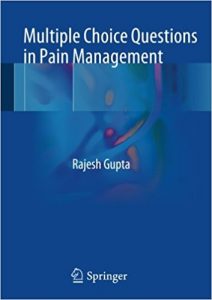
[amazon template=iframe image2&asin=3319569155]
This book presents current clinical knowledge relating to key topics in acute and chronic pain in a multiple choice question (MCQ) format. Individual chapters are devoted to subjects such as the anatomy of pain pathways, pain processing, evaluation of pain, different pain syndromes and pain involving different regions of the body, pharmacologic and physical pain management, neural blockade, and special procedures. Each of the MCQs has four or five answer options in true/false format, and the answers are discussed in detail with provision of suitable references whenever appropriate. Multiple Choice Questions in Pain Management will be especially valuable for those who are sitting anesthesia board exams anywhere in the world. It will, for example, meet the needs of candidates for the FRCA examination (in which 20–25% of MCQs relate to pain management) or the FFPMRCA examination (Fellowship of the Faculty of Pain Medicine of the Royal College of Anaesthetists). In addition, the book will be useful for pain fellows and for all clinicians who are seeking to improve their knowledge of pain management.
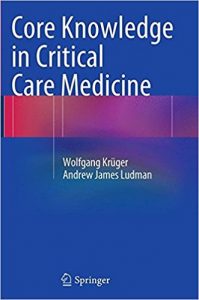
[amazon template=iframe image2&asin=3662508532]
This book provides a detailed review of state of the art knowledge on critical care topics as well as the latest research findings. It covers the core aspects in excellent detail, but is not so comprehensive as to make its daily use unfeasible. For each condition considered, discussion of the pathophysiology is integrated with observations on diagnosis and treatment in order to allow a deeper understanding. The book is scientifically based, with extensive references to published research. This will allow readers to investigate their individual interests further and will enable physicians to justify measures by providing a coherent, evidence-based strategy and relevant citations where needed. Core Knowledge in Critical Care Medicine will appeal to experienced practitioners as an aide-mémoire, but will also be of great value to a wide range of more junior staff wishing to complement their background knowledge with important facts applicable to everyday practice.
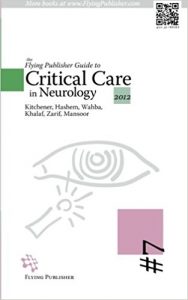
[amazon template=iframe image2&asin=3942687070]
The number of dedicated neurointensive care units is growing greatly and, now more than ever, physicians need to learn how to take care of neurocritical patients. Critical Care in Neurology addresses the day-to-day management of patients in neurointensive care units, and in particular the clinical approach to common neurocritical conditions.
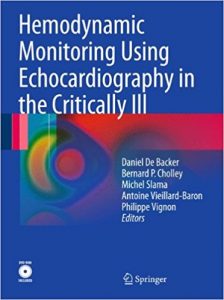
[amazon template=iframe image2&asin=3540879544]
The hemodynamic evaluation of patients with acute circulatory failure and respiratory failure has in the past usually been performed using invasive procedures but in recent years less invasive monitoring devices have been introduced. Echocardiography can be used for both the diagnosis and the management of circulatory and respiratory failure. This book provides all the essential information required by readers in order to perform optimal hemodynamic management of the critically ill based on echocardiographic guidance. After an introductory section on basic principles, hemodynamic assessment using echocardiography is discussed in detail. The diagnosis and management of all types of circulatory and acute respiratory failure by means of echocardiography are then rigorously considered, and specific situations such as thoracic trauma and acute aortic syndrome are examined. The final section is devoted to future issues and applications.
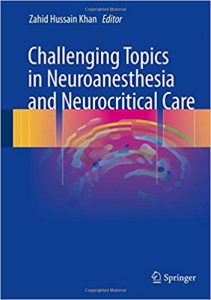
[amazon template=iframe image2&asin=3319414437]
This book focuses on controversial issues in neuroanesthesia and neurocritical care that in general have been subjected to insufficient professional scrutiny. The book is in three parts, the first of which is devoted to topics relating to traumatic brain and spinal cord injury, such as brain tissue oxygenation, the role of biomarkers, and diagnosis of brain death. Aspects of airway and pain management are then addressed, covering, for example, airway management in an emergency setting, airway evaluation in the edentulous patient, and pain management in neurosurgery and after craniotomy. The final part of the book considers a wide range of other challenging subjects in the field of neuroanesthesia and neurocritical care. Throughout, much information is provided on the latest, state of the art management. The authors are acknowledged experts in the issues they discuss, and the book will be of interest for graduate and undergraduate students, residents, neuroanesthetists, neurointensivists, emergency medicine residents and specialists, fellows in neurocritical care and all those directly involved in the perioperative care of patients with head and neck pathology.
Zahid Hussain Khan, MD, FCPS, is a Professor in the Department of Anesthesiology & Intensive Care, Tehran University of Medical Sciences, Tehran, I.R. Iran. He has previously been a Visiting Professor to the University of Alberta, Department of Anesthesiology & Pain Medicine, Alberta, Canada. Dr. Khan has been the recipient of various honors, including the prestigious Hakim Gorjani Award in Medicine, which he received at the Avicenna Festival (Tehran University of Medical Sciences) in 2008.He is a member of the Medical Council of Iran, the Pakistan Medical and Dental Council, the Canadian Anesthesiologists’ Society, and various other professional organizations. Dr. Khan’s previous publications include the 2014 Springer book Airway Management, of which he was the sole editor.
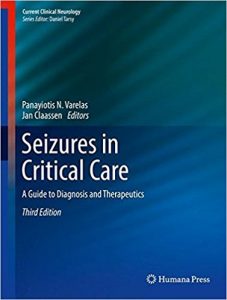
[amazon template=iframe image2&asin=3319495550]
Updated and expanded to provide the neurologic, intensive and critical care communities a comprehensive guide to common critical care illnesses and seizures, this third edition remains the premier resource on seizures in critical care. In addition to covering etiology, pathophysiology, diagnosis, differential diagnosis and treatment options, chapters feature the latest technologies and treatments and integrate current literature. This unique and specialized text offers neurologists, intensivists, neurosurgeons, trauma surgeons, epileptologists, electrophysiologists and residents in various specialties clarity on this challenging set of comorbidities.
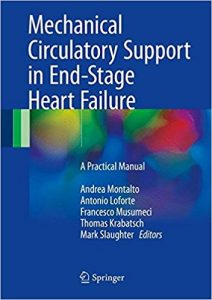
[amazon template=iframe image2&asin=3319433814]
This book is a detailed practical guide to the use of ventricular assist devices and total artificial hearts to provide mechanical circulatory support (MCS) in patients with end-stage heart failure. It explains why MCS may be indicated, which patients require MCS, when and how to implant ventricular assist devices or a total artificial heart, and how to avoid potential complications of MCS. Management throughout the period of care is described, from preimplantation to follow-up, and both typical and atypical cases are discussed. The text features numerous helpful tips and tricks relating to surgical and nonsurgical management and is supported by a wealth of high-quality illustrations that document the preoperative evaluation and implantation techniques. Heart transplantation remains the gold standard for the treatment of patients suffering from end-stage heart failure, but the shortage of donors has led to an increase in the use of MCS. This book will assist all physicians, and especially cardiologists and anesthesiologists, who are involved in the care of these patients.